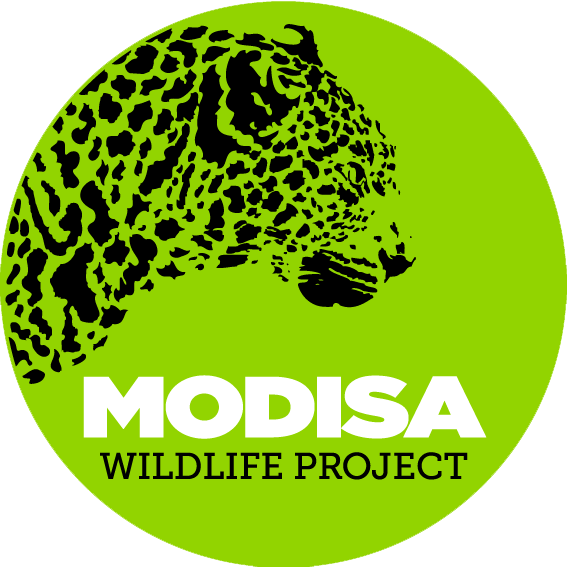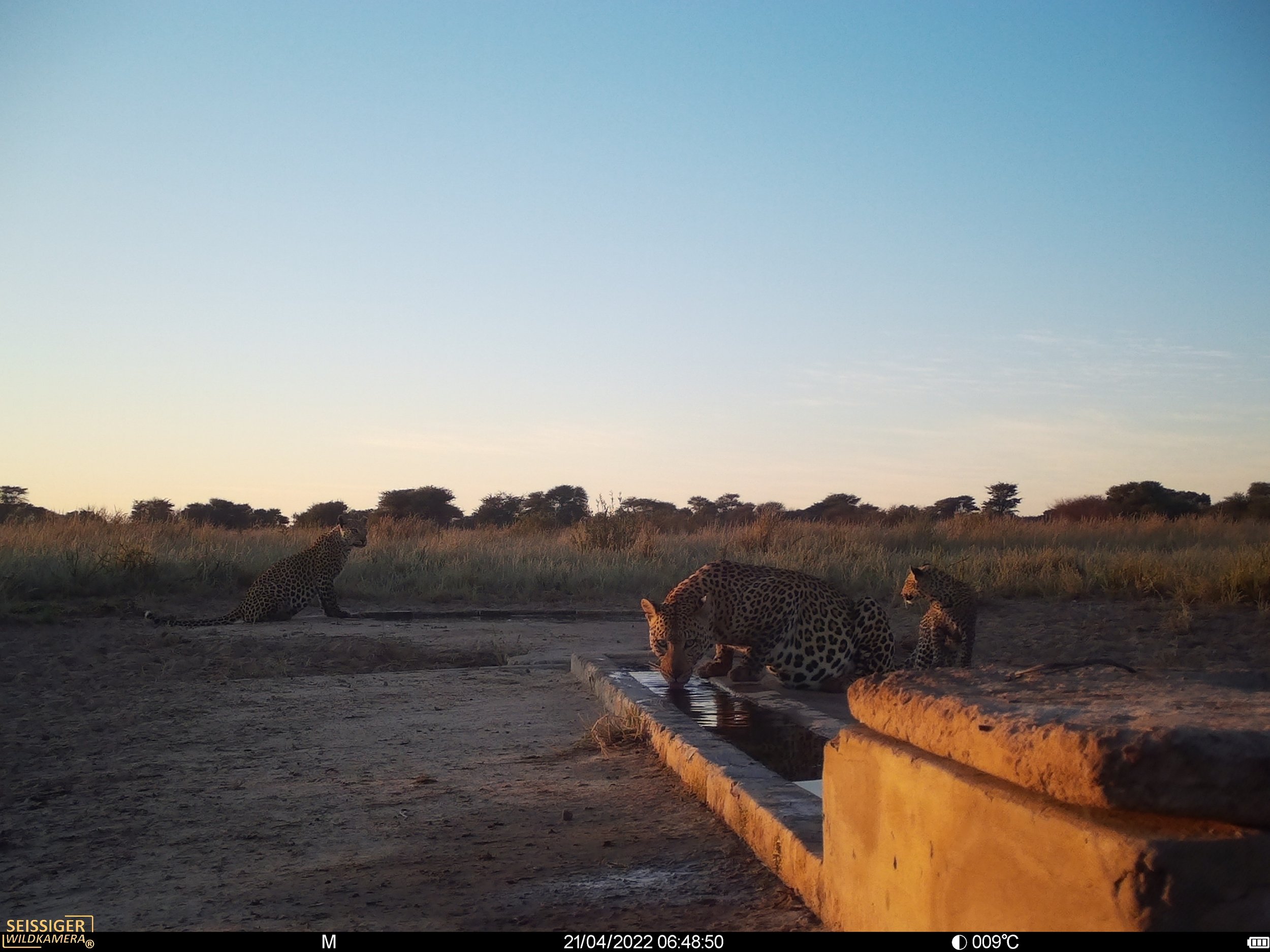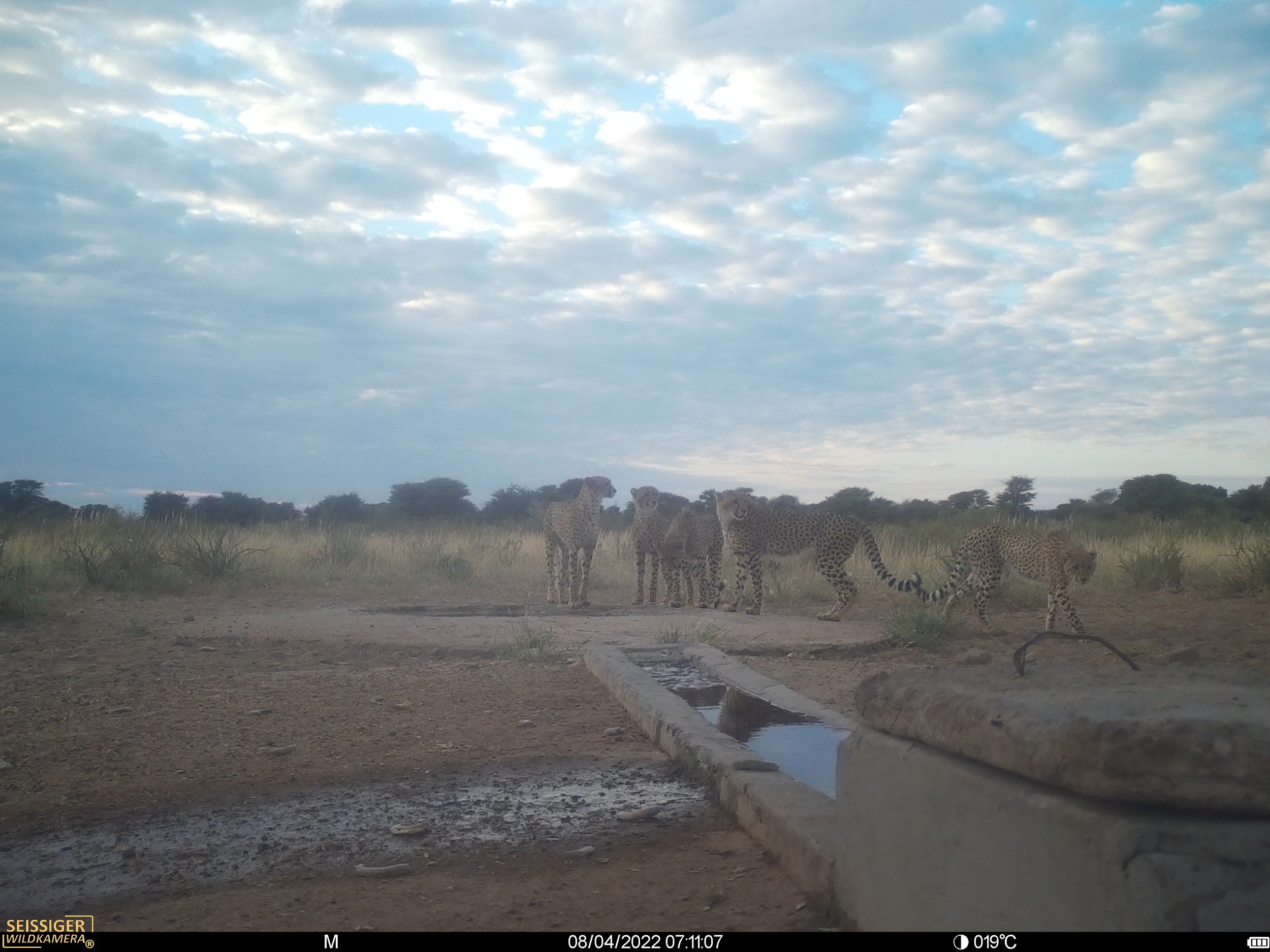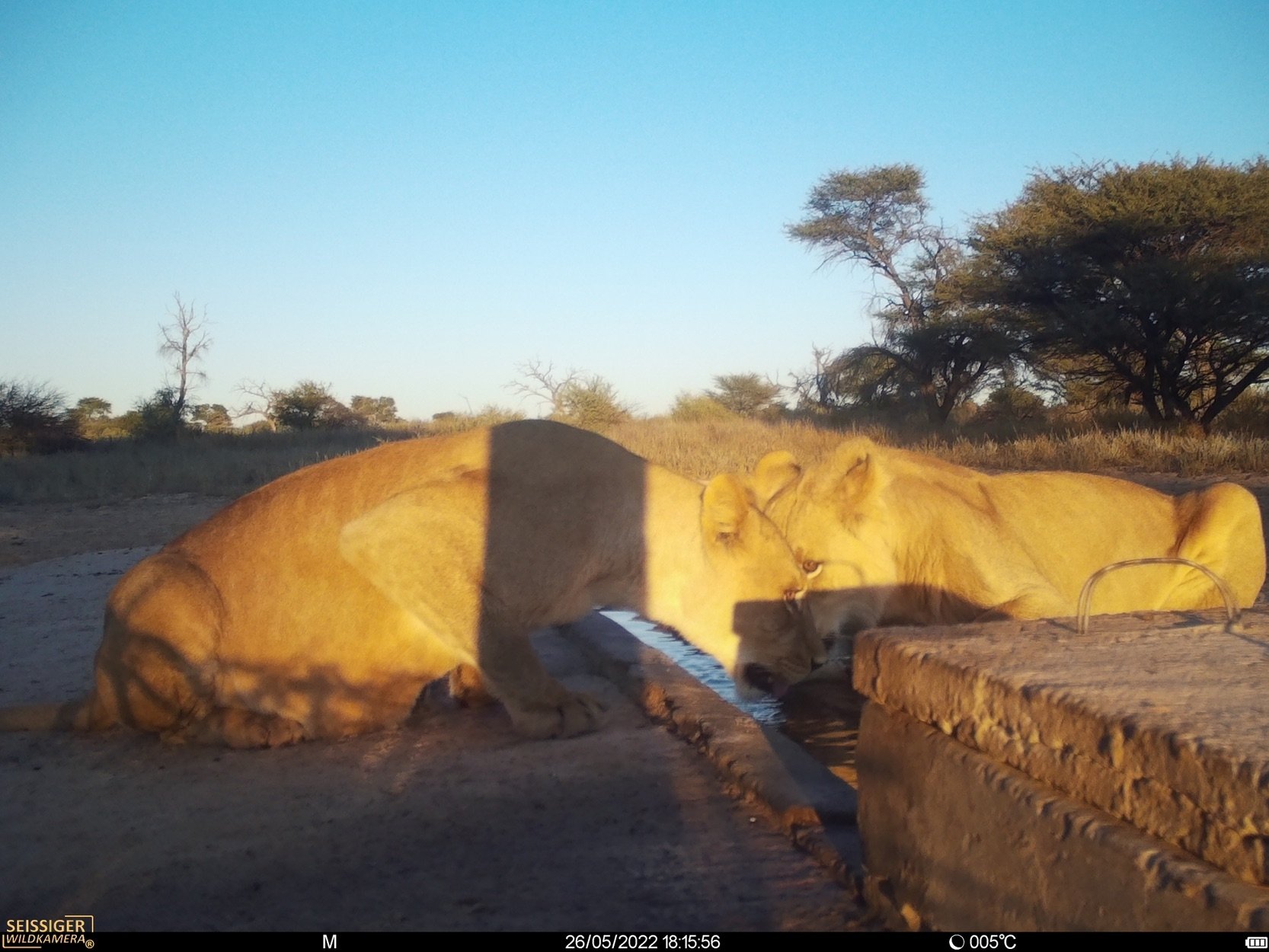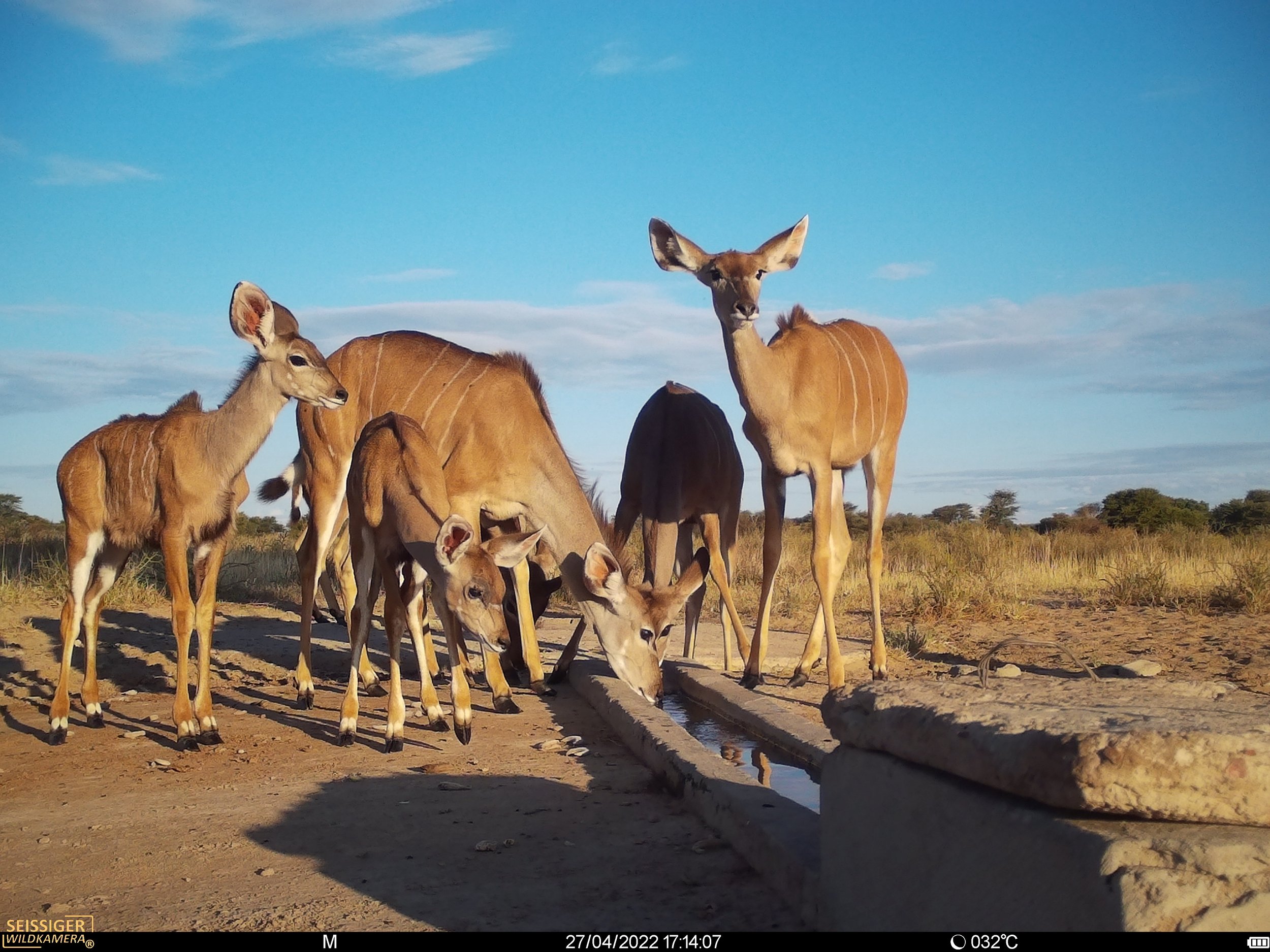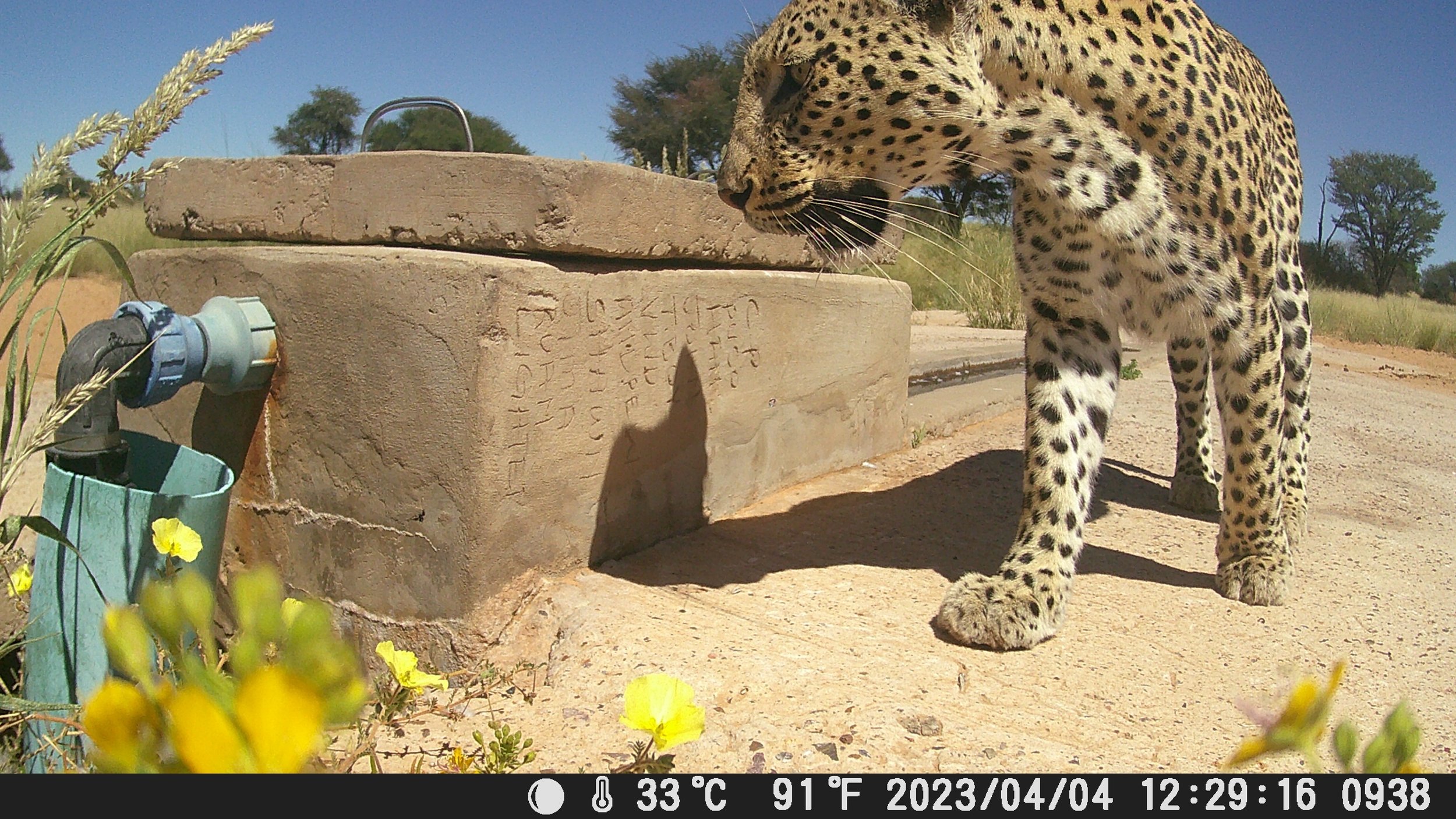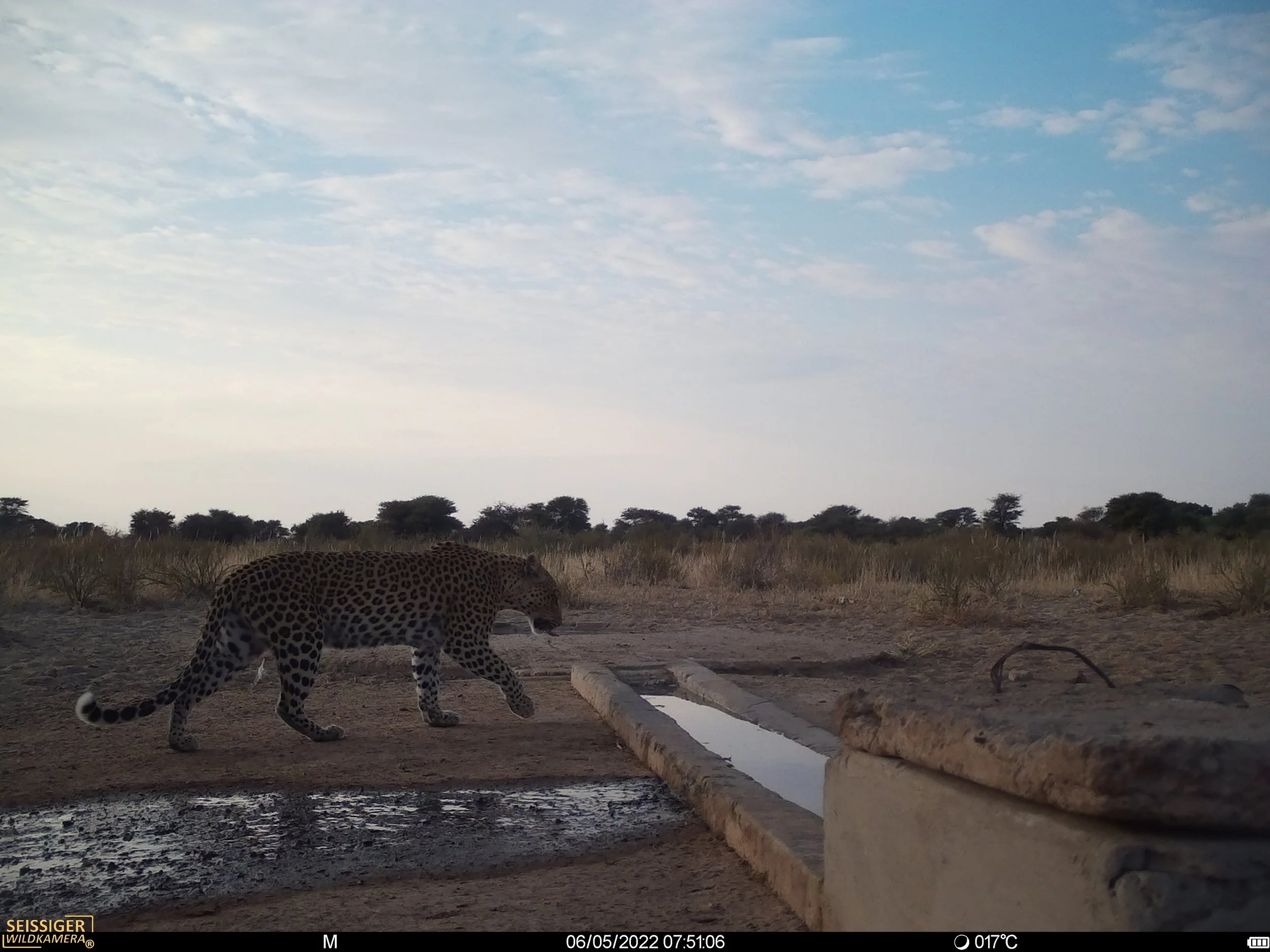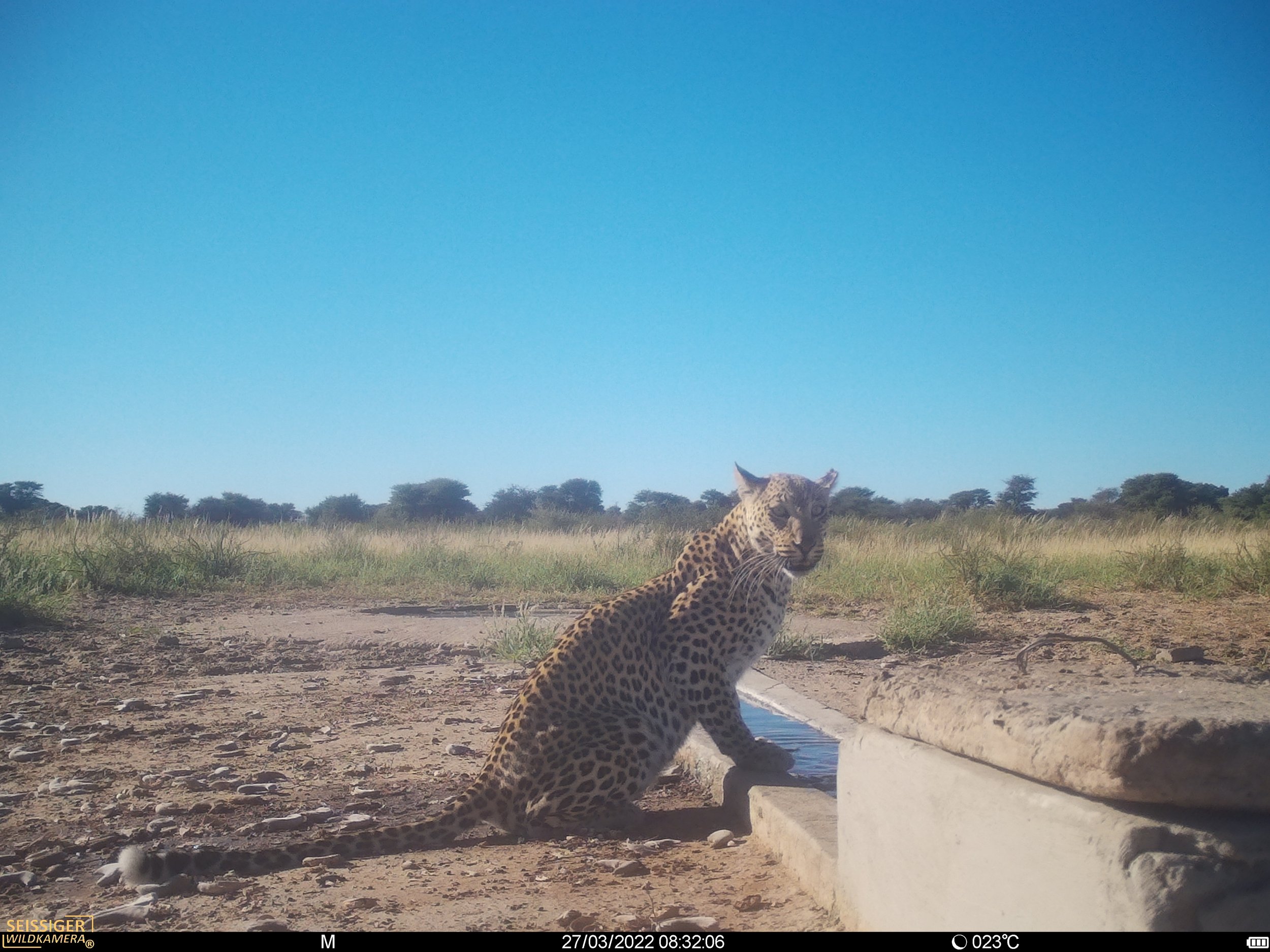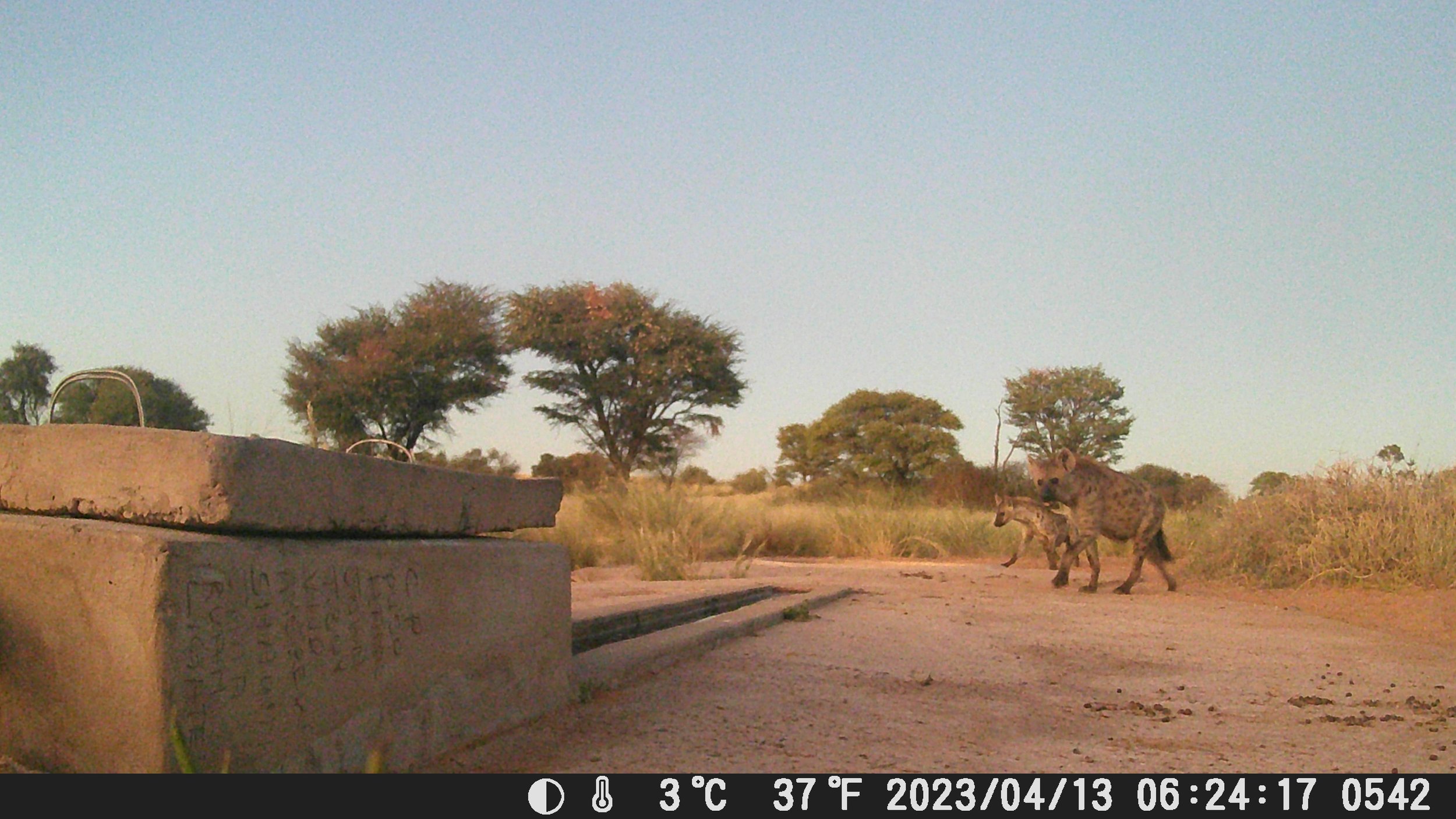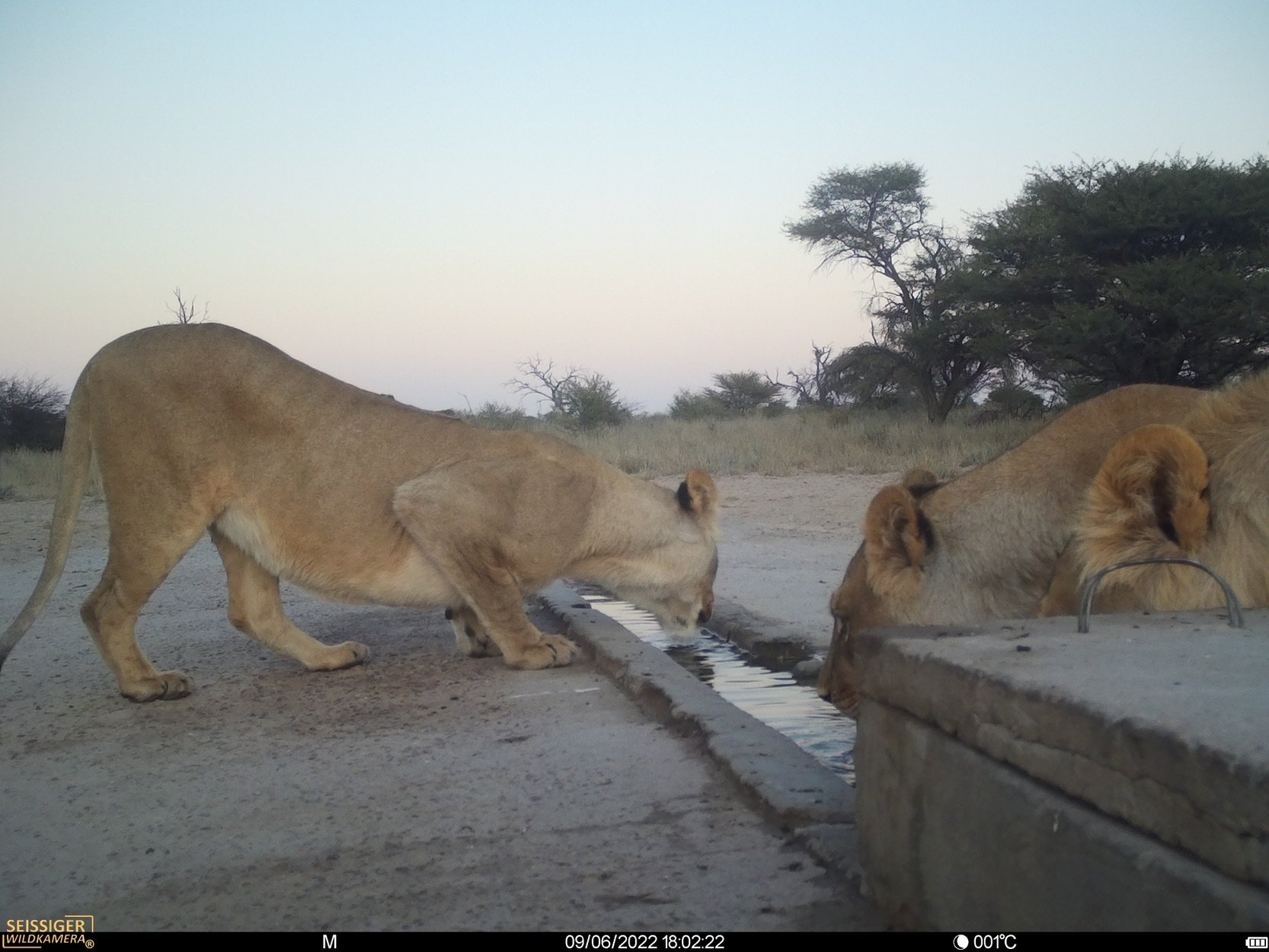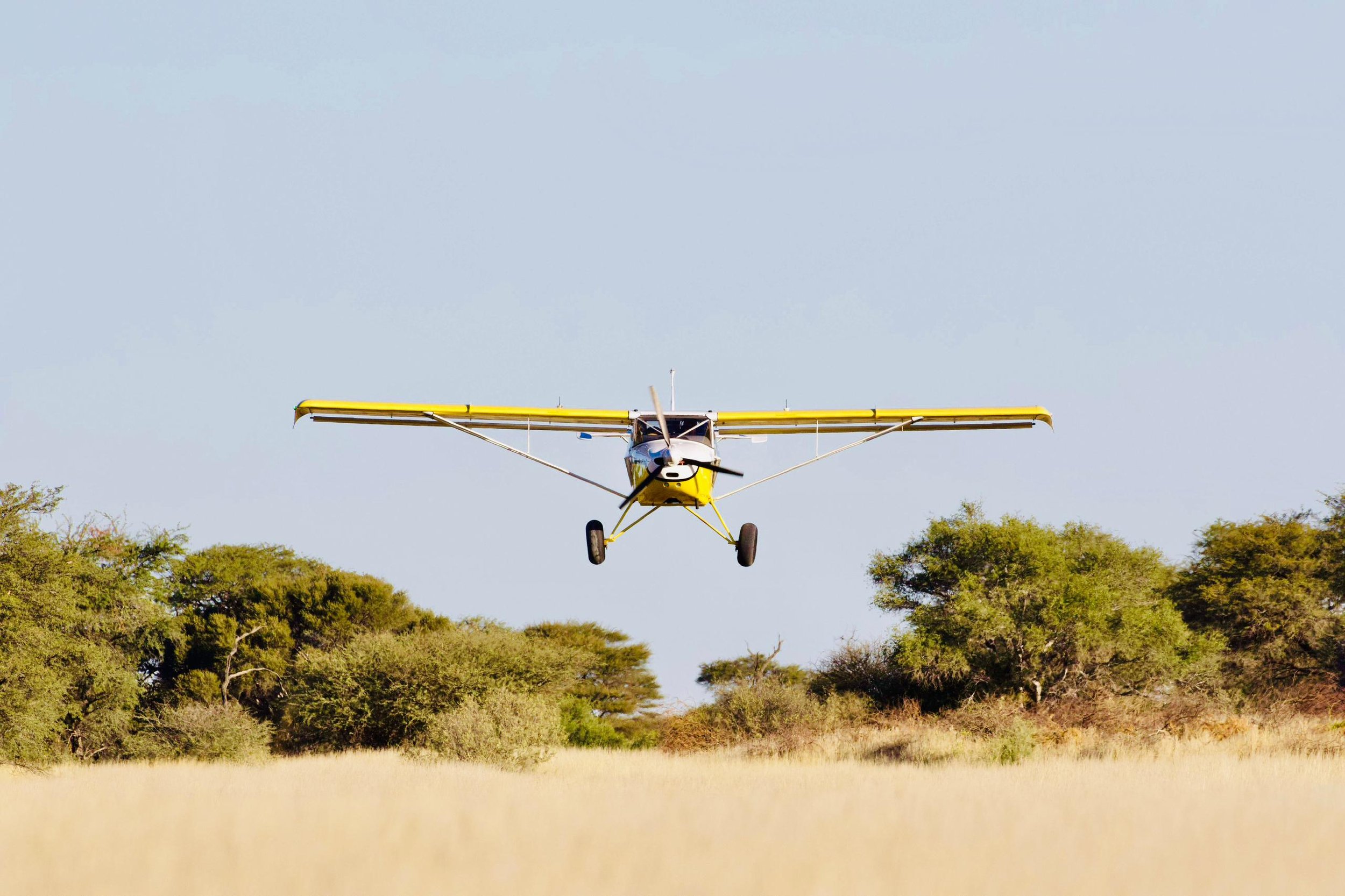

A Sustainable Future for the Kalahari
At the heart of the Modisa Wildlife Project is a commitment to the sustainable restoration and conservation of the Kalahari ecosystem. Recognising that the vast protected areas of Botswana have the capacity to support larger populations of herbivores, and in turn, the predators who depend on them, we strive to utilise the Kalahari's bounty to its full potential. This not only ensures a balanced ecosystem but also reduces the risk of damaging bushfires, contributes to our global carbon footprint reduction efforts, and enhances Botswana’s appeal as a destination for eco-conscious tourists.
Our multifaceted approach to conservation includes the establishment of strong ties with the Department of Wildlife and other government institutions. We conduct constant surveillance of our designated territory, employing vehicles and a bushplane to monitor the wildlife and detect potential threats. Active in combating and managing bushfires, we work diligently to protect the unique landscapes and their inhabitants.
Within our area, we manage herbivore populations, ensuring a balanced ecosystem that supports many endangered predators. Our ongoing collaboration with the University of Texas allows us further scientific understanding through the establishment of a permanent research station on-site.
Community engagement is paramount to our mission, as we are in the process of setting up comprehensive outreach and education programs for the local population. We are committed to creating jobs in tourism and conservation through our guest program and research base, fostering a sustainable local economy rooted in the beauty and vitality of the Kalahari.
As an exemplar of sustainable operation, we invest in initiatives like rainwater catchment systems, small-scale farming and beekeeping. Our guest program is at the heart of our educational mission, providing a hands-on, immersive experience of wildlife conservation for guests from all over the world.
Our ambitious goal is to optimise the carrying capacity of the Kalahari, transforming it into a vibrant wildlife haven that serves as an ecological, educational, and economic asset for Botswana.
As we grow, we are committed to keeping our skies clear, our nights dark, and our air clean—preserving the breathtaking beauty of this untouched paradise.
Valentin Grüner, Co-Founder and managing director


Vigilance from Land to Sky: The Anti-Poaching Initiative
Modisa Wildlife Project takes a proactive stand against poaching, recognizing its devastating effect on African wildlife. We collaborate closely with local authorities, including the Department of Wildlife and their Anti-Poaching Unit, to ensure the safety and survival of the extraordinary species inhabiting the Kalahari Desert.
Our vigilant ground patrols cover vast areas of the desert, ensuring a robust presence that deters illicit activities. Elevating our efforts literally and figuratively, our bush plane provides an invaluable aerial perspective, helping us monitor the wider landscape and detect potential signs of poaching. This bird's-eye view allows us to spot unusual activity and respond swiftly and effectively, even in the most inaccessible regions of the Kalahari.
Together, these strategies form a vigilant shield against poaching, protecting the wildlife and contributing to the sustainability of our ecosystem. This diligent, hands-on approach is another facet of our commitment to being true guardians of this magnificent slice of African wilderness.
Through joining our interactive guest program, you support these crucial efforts to safeguard the Kalahari's unique wildlife.
Our Commitment to a safe Haven for Wildlife
Our private wildlife area is a haven for a wide variety of species that have adapted to thrive in this harsh yet beautiful environment.
From the stealthy predators like lions, leopards, cheetahs, and hyenas, to the smaller yet fascinating carnivores such as bat-eared foxes, honey badgers, and black-backed jackals, each animal plays an integral role in maintaining the delicate balance of the ecosystem.
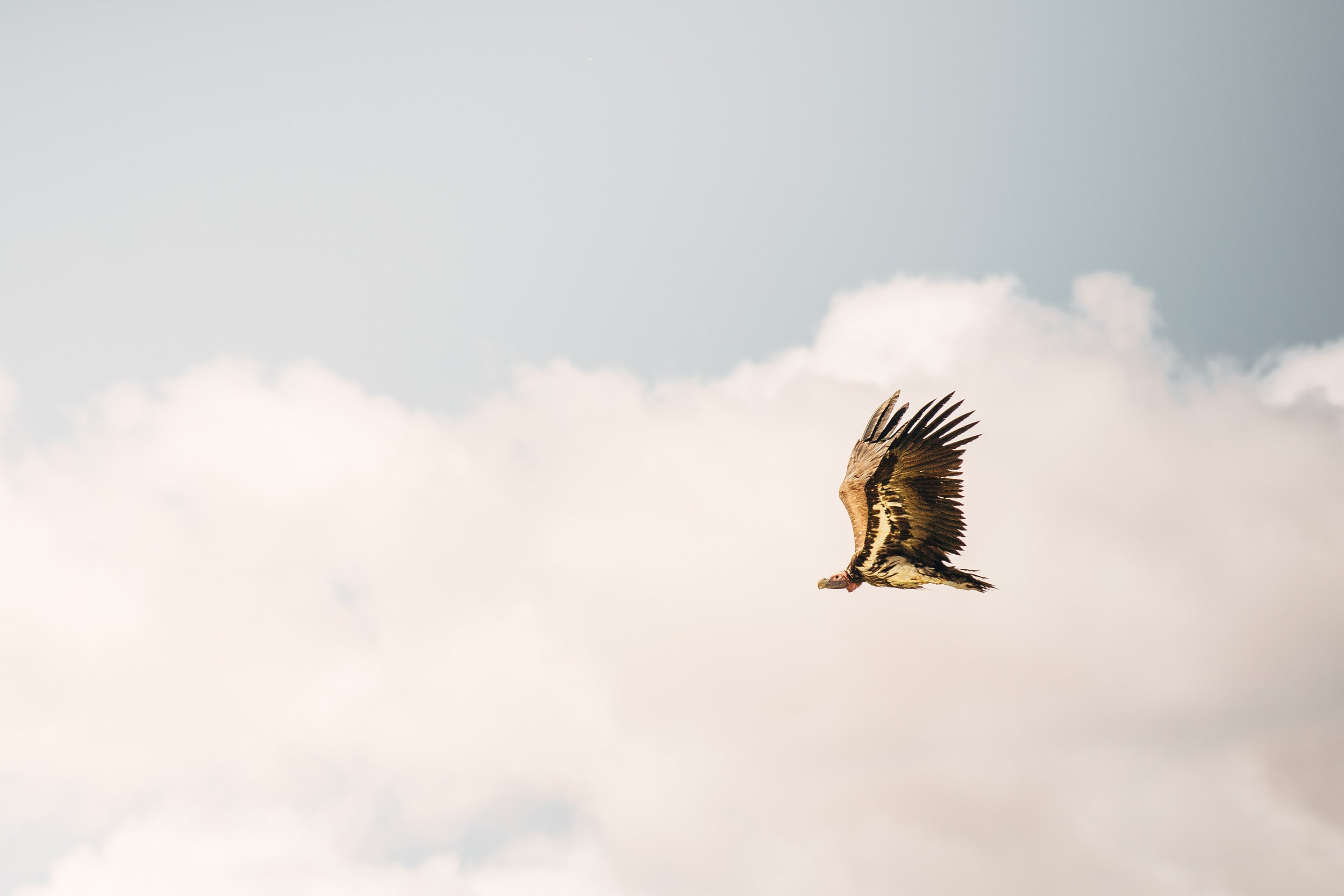

Our Commitment to Vulture Conservation
Vultures are vital for ecosystems, playing a unique role by scavenging carcasses and digesting diseases like botulism, cholera, anthrax, and rabies. Their clean-up ability is unmatched, with no other animal or human capable of replacing them. Unfortunately, vultures suffer from an undeserved bad reputation fuelled by media portrayals. Their protection has been neglected for a long time, despite scientists recognizing their crucial function.
Many vulture species worldwide are now threatened with extinction, but we proudly operate as one of Botswana’s vulture-safe zones under Raptors Botswana. We are fully committed to maintaining a poison and obstacle-free area, providing clean water for drinking and bathing, and actively monitoring nests and nesting success. Our presence of large predators and their leftovers create feeding opportunities for vultures. We also crush larger bones into small particles as a calcium source to support the development of young birds' bone structure, ensuring the future health of vulture populations. By joining our interactive guest program, you can directly contribute to vulture monitoring, bone crushing, and providing for these magnificent masters of the sky.


Nurturing Future Guardians: Our Engagement with Local Communities
We firmly believe that education is the bedrock of lasting conservation. To foster this belief, we are in the process of launching an initiative to engage with local schools, planting the seeds of knowledge about the remarkable Kalahari ecosystem in young minds.
Our mission extends far beyond the present, as we strive to inspire the next generation to carry the torch of our conservation efforts. Through interactive workshops, field visits, and engaging learning materials, we plan to empower local children with an understanding of their natural environment, instilling in them a profound respect and love for the Kalahari and its incredible array of life. This initiative serves not only to safeguard the future of the Kalahari, but also to strengthen the bond between our project and the local community.
The future of Africa's remaining wild paradises will be determined by its people. It's our firm belief that fostering a passion for the natural environment and providing opportunities to make a decent living through nature-related work form the cornerstones of successful conservation in Africa. At Modisa, we stand as guardians of the Kalahari, committed to a sustainable and thriving future for its rich and diverse wildlife.
